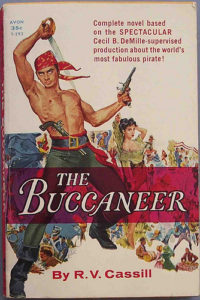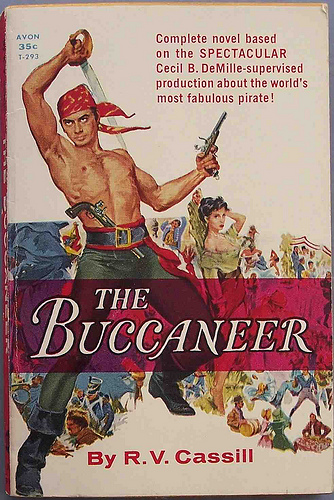Zeitungsdunkel
With a heavy irony it is often said that if it is on Wikipedia then it must be true. Citation needed.
Wikipedia, as we know, is a bit of a paradox. On one hand it is largely accepted that Wikipedia is not trustworthy, yet it still remains high on the search engine results and is often is the go to site for quick answers. At best it can provide a quick recap for details the reader does not have time to more deeply investigate, and at worse helps people like US Senator Sheila Jackson Lee gain more unwanted publicity.
Most readers are no doubt familiar with the basic principles of Wikipedia. People can create and edit posts on topics, with the intent that careful cross checking by other users and ample application of citations will ensure the accuracy and quality of the published data.
That is the intent and as an idea it is no doubt rather noble. In practice it became another example of who can type the loudest, and is controlled by people either with too much spare time on their hands or with an active vested interest in ensuring only one side of the argument is made public.

Your author came across an interesting, if oddly bizarre example of this issue in the days recently past, while casually attempting to refresh memory on the subtle historical differences between buccaneers and pirates. Unexpectedly, in the middle of the Wikipedia entry was a section on pirate sexuality. Here we discover some obscure historian by the name of Burg had put forward that one of the main motivators for the 17th century male to take up the pirate lifestyle was to hang out with other men outside of society’s judgemental eyes, and enjoy a lot of man sex.
Now after a raised and sceptical eyebrow, came the follow up question of just who this Burg person was, anyway. Famous enough to be quoted as an expert in pirate sexuality but not enough to be rewarded by a Wikipedia page of his own apparently, and your author is still not really any the wiser. The claim however, under the rules of Wikipedia data management, was completely valid. Burg had a published book, hence his view was one worthy of discussion.
So there you go. Pirates, huh? All those motivations for adventure and a chance to get rich at the expense of the Spanish were clearly secondary to the desire for a bit of man love. Who knew?
The Wikipedia entry in question then follows up with another paragraph quoting other historians polity calling Burg’s findings ‘extremely speculative’, and so balance and open discussion have been restored and no one needs to get young Ms Triggson the hotline.
Well, here lays the rub. In order to counter any argument you need to have a nice recognised and published reference behind you. It is not simply good enough to stand up and say that you have never heard such a theory and that it flies in the face of everything else you have read or experienced. You need to give examples, and of those examples it is often not enough to cite references that do not support the original claim, but are required to provide ones that openly counter it.
Where does this leave us?
In a nutshell, to counter any claim in Wikipedia without simply troll deleting anything you disagree with, you effectively have to be published.
How do you get published? Well you could spend years researching your topic of individual passion before seeking a deal with a respectable publishing house, or, go to university.
Now in this author’s view, for the most part university is a place where people go if they are too stupid to actually work for a living. This author also believes most of the public service is glorified Work For The Dole, but we digress.
Going to University is claimed to be a Very Good Thing by many people, most of whom have a vested interest in pushing that particular wheelbarrow. The education department is right behind it, for keeping more teens in high school till Year 12 allows for more teachers to be employed. Our political betters support it as ‘The Clever Country’ makes a good election campaign slogan, and by encouraging youth to remain in school you help prevent them roaming the streets upsetting the jobless figures and annoying the talk-back radio demographic.
And of course, the entire higher education complex wants students to enrol at their fine institutions for the obvious reason that it keeps justifying their continued existence.
Your author does believe there is a place for universities. In Adelaide that place is between the river and North Terrace, but that doesn’t justify the fact that a significantly large percentage of courses on offer are effectively Hobby Degrees that do little to further their owner’s professional careers, and much to give them a massive HECS debt and a future of living in share houses. They will however give the student ample opportunity to write mildly tedious and poorly structured papers on whatever topic most takes the fancy of their like-minded lecturer.
Congratulations. You are now part of the academic world.
Where does this leave our budding enthusiast of Wikipedia edits?
Well a lot closer to ‘their’ truth than an outsider, that’s for starters.
Once a supported claim has been made on Wikipedia then the onus is to provide a counter argument. Well informed statements of ‘Dude, that is clearly bollocks’ will not cut it unless that exact quote has been previously published.
Published. There is that word again. Without a published back up, your opinion is just your opinion. Open discussion on Wikipedia is being restricted by the need to provide a valid reference. No source, no respect, no editing. Effectively this means what would normally be highly dubious opinions cannot be discredited by simple application of the Smell Test. Power instead lies with those who have access to the engines of publication, and those people are more often than not the ones with the campus ID cards.
Our friend Burg from earlier was apparently an historian from Arizona State and his book was happily published by New York University Press. Your XYZ author here has not read the book and, full disclosure, is not fully in a position to actively put forward any sound arguments for or against Burg’s claims but that is not the point. The point is that the entire higher education social class have created themselves an environment that not only allows the print publication of books such as Burg’s, but also implicitly discredits people like your author for not being university trained in the fine arts of history. Hence to be in a position to even be considered worthy of counter argument, one must first become accepted and then later climb the hallowed steps of your favourite venue of higher learning; so say the universities, and outsiders can keep their uneducated mouths shut.
Discussion, in these online times, has been effectively restricted to those with the correct framed parchments on their walls. Have an ISBN to your name and you effectively have free reign to Wiki-edit whatever you want, quoting yourself as the single support for your claims no matter how poorly constructed the argument. You are published, somewhere, anywhere, and your claims may stand. Your critics, with common sense, logical explanation or even personal experience, can jump.
Yes, Wikipedia is unreliable as a source, but it still a source and a regularly consulted one at that. Under Wikipedia’s probably well intended rules it is one that vastly favours input from only a small social elite segment of the population who, maliciously or inadvertently, are blocking access to vast blocks of opposing information. If this elitist dominance of discussion was simply restricted to this forum it might be a minor irritant, but unfortunately it an example of much of modern society as a whole.
Only the ‘educated’ people are allowed to hold discussions.
And that, in the long run, is making us dumber.
Citation needed.
Photo by cdrummbks 










